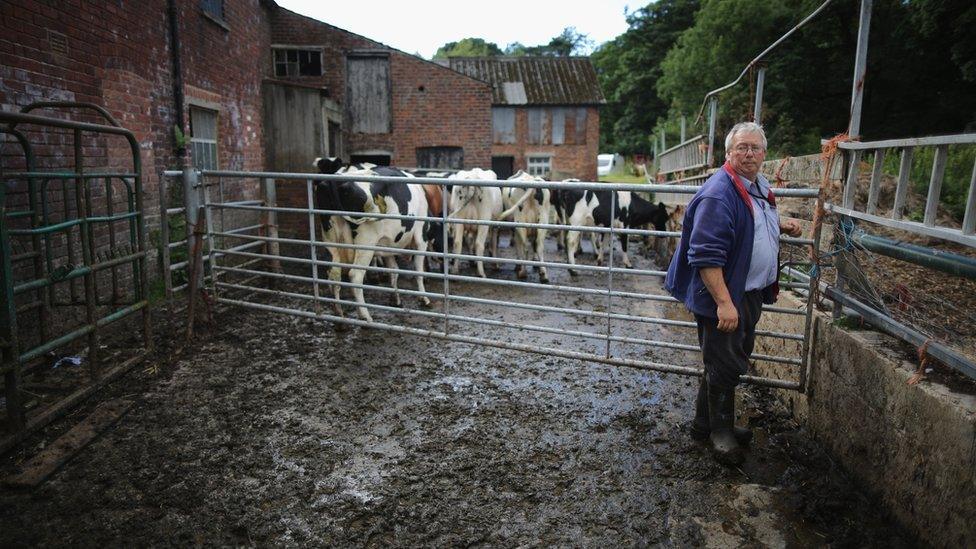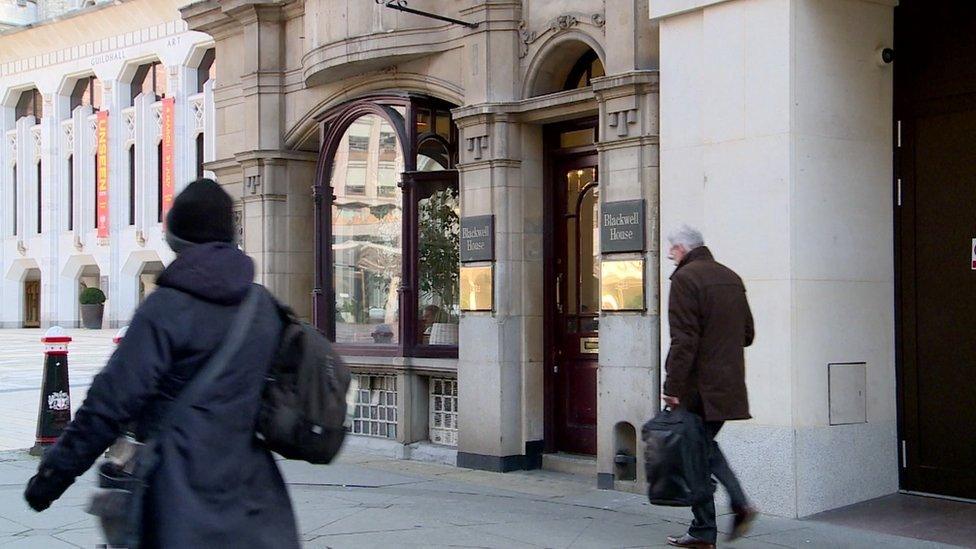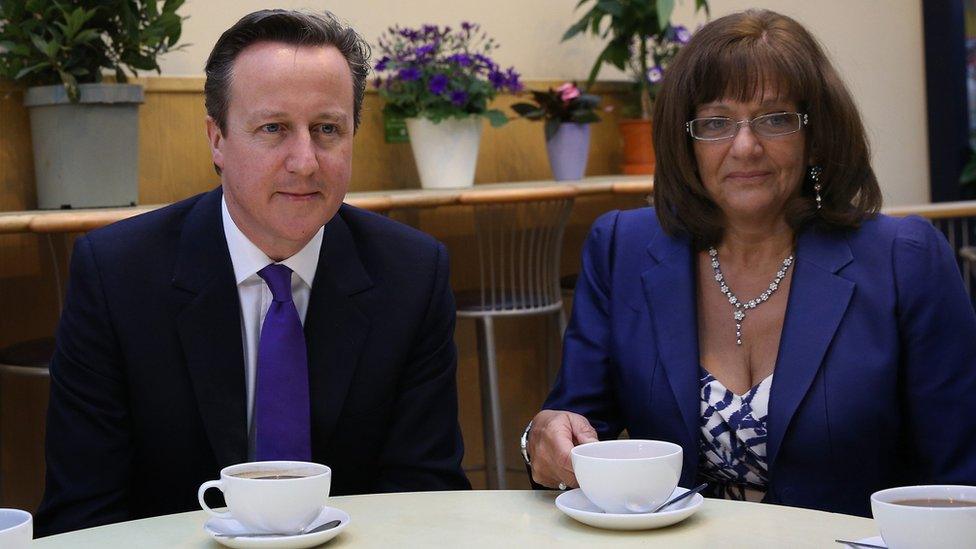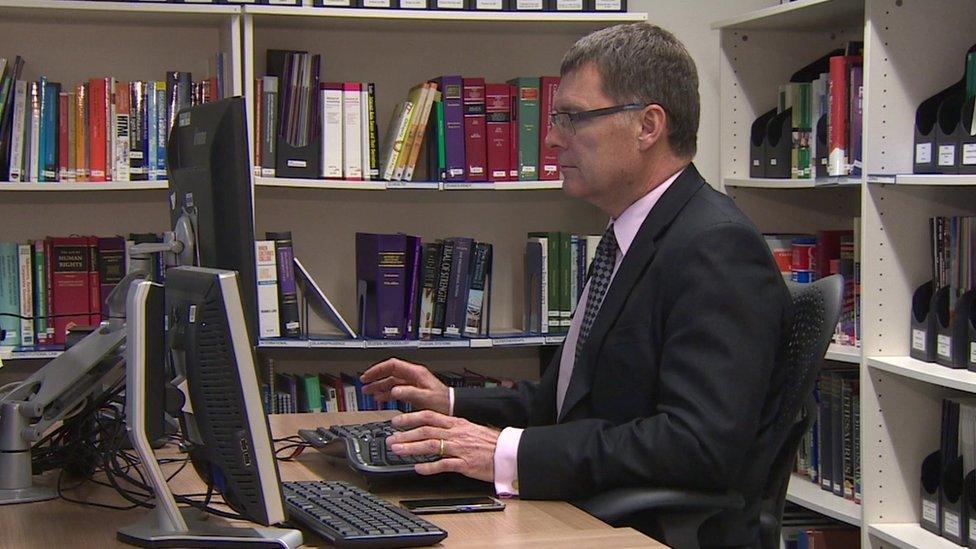Thousands told their pension savings could be at risk
- Published

Farmers are among small employers now obliged to provide pensions for their workers
Thousands of workers who have been encouraged by the government to take out pension plans could be at risk of losing their savings, the industry regulator has told the BBC.
It follows fears that dozens of companies providing auto enrolment pensions are too small to survive.
The BBC has also uncovered evidence that employers and workers are being deliberately misled by some providers.
The government said it was aware of the issue, and was planning to take action.
Independent experts claim the problem could affect up to a quarter of a million people a year who are putting their savings into so-called master trust pensions.
Such schemes are popular with the 1.8 million small employers with fewer than 30 staff who are currently signing up under the auto enrolment programme.
"There is a risk of these schemes falling over; there is a risk that members might lose their money," said Andrew Warwick Thompson, executive director for regulatory policy at the Pensions Regulator.
However, he said scheme assets invested through asset managers regulated by the Financial Conduct Authority (FCA) would be safe.
This will be "the vast majority of cases", he said.
'Competent people'
The regulator also raised concerns about some of those in charge of such pension schemes.
Some of the small pension providers "may not be run by competent people", said Mr Warwick Thompson.
Even where directors are qualified, providers do not always make it clear where the savings are invested, or who owns the schemes.
Worse than that, the BBC discovered that at least one master trust appears to be providing misleading information online.

My WorkPlace Pension, based in the City, claims to be managing pensions worth £50m
On its website, My WorkPlace Pension claims to have £50m of pensions under management, handled by the respected city firm Old Mutual.
When the BBC questioned the whereabouts of that money, My WorkPlace Pension admitted it actually had no such assets at all.
Subsequently Old Mutual told the BBC that it was not handling the company's account, and asked for its name to be removed from their website.
A spokesman for My WorkPlace Pension, called Tony - he would not give his surname - explained that the business was not yet live, although it was close to launch.
However, the BBC has seen a letter suggesting the scheme was being actively marketed as far back as September 2015.
MWP Pension Ltd is a company appointed by My Workplace Pension to do marketing for it. According to Companies House, it is 50% owned by Gavin McCloskey. He and an associate, Anthony Okeke, were previously directors of another firm which sold sports fashion wear.
Its trading name was one that McCloskey might now be regretting.
They called the business Wide-Boys R Us - possibly a joke at the time, but one that does not sound so amusing when you are in the serious business of promoting pensions.
Protection
Unlike big pension providers - known as contract-based schemes - master trusts are not regulated by the FCA. Instead they are overseen by The Pensions Regulator (TPR), which provides a much lower level of supervision.
"There's not so much member protection in the master trust world, versus contract-based schemes," said Nick Keppel-Palmer, the strategy director of Husky Finance, an independent advisory service for small employers.
"If they go down, the members' money won't be protected."

Pensions minister Ros Altmann: "Doing nothing is not an option"
However the government said it was aware of the issues related to some master trusts, and was working to protect employees' savings.
"We are determined to ensure the necessary protections are in place," said Baroness Ros Altmann, the pensions minister.
"Doing nothing is not an option, as ensuring long term security and protection are paramount in pensions."
Those whose savings are invested with mainstream City firms have much higher levels of protection, thanks to FCA regulation.
Some such savings are also protected under the Financial Services Compensation Scheme (FSCS), but only up to a limit of £50,000.
Companies with more than 50 employees are currently excluded from this.
However the FCA is consulting on whether FSCS protection should now be extended to larger companies.

Advice to Small Employers

Barbers are among those who now have to provide a pension scheme
Use one of the larger master trust schemes to provide a pension
Report any concerns about your pension scheme to the Pensions Regulator
See the Regulator's website for further details of the Master Trust Assurance, external scheme.

Tougher regulation?
At the moment anyone who registers with HM Revenue and Customs (HMRC) can set up such a pension scheme. They do not need to have any particular qualifications for the job, nor do they need to have any financial assets.
The only criteria is that they need to be a "fit and proper person".
However, in its guidance, external, HMRC says it assumes that anyone registering will be fit and proper - unless it has information to the contrary.
"It is very easy to register as a pension scheme with the tax authorities, and that's part of the problem," said Malcolm Small, chairman of the Retirement Income Alliance.
The Pensions Regulator has a similar light touch. It says it cannot endorse or recommend any particular pension scheme, and it "has no responsibility for checking that master trust schemes' claims are accurate before they are launched".
Critics say that is evidence that the regulator needs reform.
"The Pensions Regulator doesn't have the power to scrutinise how these pensions are sold. As a result I think there's a problem," said Mr Keppel-Palmer.

Regulator Andrew Warwick Thompson wants a plan of action in case of "mass-failure"
'Plan of action'
In a report for the industry, Mr Small claims only around 10 master trusts are reliable operators - out of a total of 80 - because many are too small or not sufficiently profitable.
The BBC contacted one small pensions company called Smart Pension which said it was confident about its own business plan.
A spokesman conceded that it would not a make a profit for several years, but stressed that it had sufficient funding to see it through to eventual profitability.
It said a separate fund had been set aside by the company to guarantee members' investments.
Of the master trust providers registered with the Pensions Regulator, only five have currently been given a "kite mark" known as the Master Trust Assurance Framework, external .
These are the official government-backed scheme, National Employment Savings Trust (NEST); NOW: Pensions; SEI Master Trust; The People's Pension and Welplan.
The Treasury has also said it is looking at whether supervision of master trusts should be beefed up. It is considering whether there should be an approved list of providers - what it calls a "whitelist"- to make choosing a pension company easier.
Such moves are likely to be welcomed by the regulator.
"We would like to have a strategy in place, where if there was a mass failure of a number of these small schemes, we're all ready to move in, and we have a plan of action in place," said Mr Warwick Thompson.
Update 23 August 2016: This story has been amended to clarify that MWP Pension Ltd was a business involved in marketing My Workplace Pension rather than providing any pensions itself.
You can hear the full report from Andrew Hosken on The World Tonight, Radio 4, at 10pm.